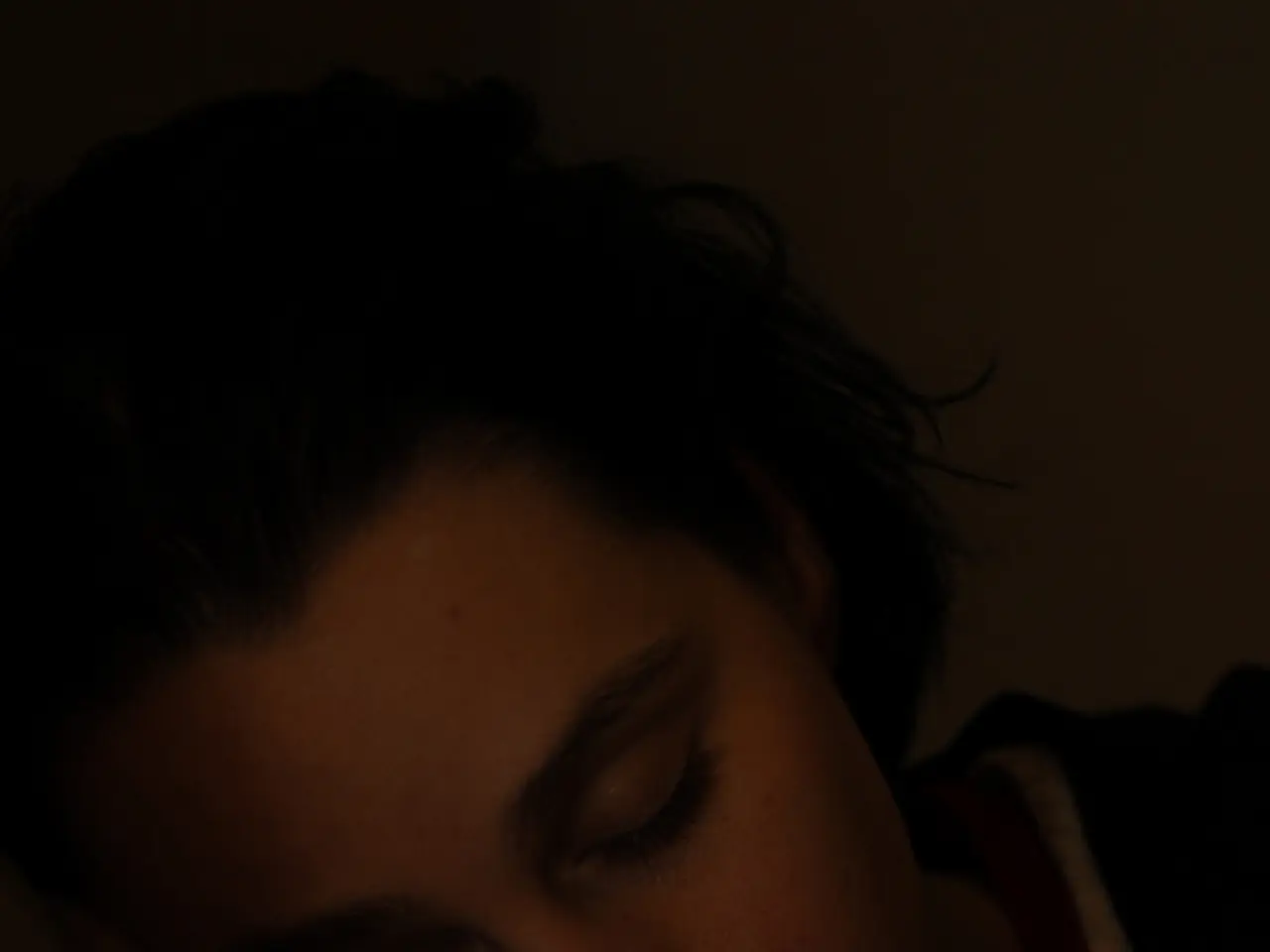Potential risks associated with drinking alcohol and sleeplessness explored further
Long-term alcohol consumption can have a significant and detrimental effect on sleep quality and increase the risk of insomnia. This sleep disorder, which affects people of all ages, can lead to various health conditions, including type 2 diabetes, obesity, depression, and cardiovascular diseases.
The physiological disruptions caused by alcohol are numerous. It suppresses REM sleep, a critical phase for restorative rest and cognitive functions, leading to lighter, fragmented sleep. Chronic drinking increases light sleep phases while decreasing deep sleep, causing persistent sleep disturbances that may continue even after alcohol use stops.
Moreover, alcohol affects the body's internal clock, causing frequent awakenings and poor sleep continuity throughout the night. This disruption can lead to an increased risk of sleep apnea, a condition characterized by breathing interruptions during sleep.
The long-term effects of alcohol-induced sleep disruption are far-reaching, including higher risks of cardiovascular disease, metabolic disorders like type 2 diabetes, weight changes, cancer, and higher mortality rates. Recovery of normal sleep patterns after cessation of alcohol can take weeks or longer, often requiring medical support and structured rehabilitation for those with alcohol use disorder.
In contrast, short-term alcohol use can initially shorten the time it takes to fall asleep and improve the first half of a night's sleep. However, in the second half, alcohol diminishes the amount of REM sleep, which is essential for the brain to process emotions and memories.
Avoiding caffeine in the late afternoon and evening, staying away from computer or telephone screens before bedtime, and having a consistent bedtime routine can promote restful sleep. Moderate drinking, defined as two or fewer drinks for males and one or fewer for females in a day, is recommended to minimize sleep disruptions and health concerns.
Treating insomnia may be necessary for some individuals due to other health issues. Anxiety symptoms can cause or worsen insomnia for some individuals, and treating anxiety can help improve overall sleep quality. Certain medications and supplements, such as melatonin, antipsychotic medications like quetiapine, and select antidepressants, can encourage a good night's sleep.
Lifestyle changes such as avoiding alcohol hours before sleep can help treat mild, short-term insomnia. Long-term reliance on alcohol for sleep can lead to an alcohol use disorder (AUD). Different forms of therapy, mindfulness, meditation, or hypnotherapy can address insomnia symptoms.
Individuals with insomnia may have difficulty maintaining a consistent sleep schedule. Common symptoms of insomnia include lying awake for a long time before sleeping, sleeping for only short periods, waking up repeatedly at night, and waking up too early.
It's essential to note that females who drink alcohol have a higher risk of hangovers, alcohol-induced liver inflammation, heart issues, issues with memory, some cancers, compared to males. People who drink alcohol before sleep are more likely to experience breathing difficulties at night and shorter periods of sleep, resulting in less restful sleep overall.
A 2019 study showed that individuals who sleep for under 6 hours each night have a 20% higher chance of heart attack than individuals who sleep between 6 and 9 hours. No two cases of insomnia are the same, and no treatment plan is right for everyone. Anyone experiencing insomnia should speak with a doctor to learn more about what treatments may work best for them.
In summary, while alcohol may initially help some people fall asleep, its long-term effects on sleep quality and insomnia are significant and detrimental. Maintaining a healthy sleep schedule, avoiding alcohol before bedtime, and seeking medical advice when necessary are crucial steps towards ensuring good sleep health.
[1] Harvard Health Publishing. (2018). Alcohol and sleep. Harvard Medical School. Retrieved from https://www.health.harvard.edu/staying-healthy/alcohol-and-sleep
[2] National Sleep Foundation. (2020). Alcohol and sleep. National Sleep Foundation. Retrieved from https://www.sleepfoundation.org/articles/alcohol-and-sleep
[3] National Institute on Alcohol Abuse and Alcoholism. (2019). Alcohol's effects on sleep. National Institute on Alcohol Abuse and Alcoholism. Retrieved from https://www.niaaa.nih.gov/alcohol-health/alcohols-effects-body#alcohol-sleep
[4] Mayo Clinic. (2020). Alcohol use disorder (AUD). Mayo Clinic. Retrieved from https://www.mayoclinic.org/diseases-conditions/alcohol-use-disorder/symptoms-causes/syc-20369854
[5] National Sleep Foundation. (2020). Sleep apnea. National Sleep Foundation. Retrieved from https://www.sleepfoundation.org/articles/sleep-apnea
- Alcohol's impact on sleep extends beyond the initial aid in falling asleep, as its prolonged consumption can lead to suppressed REM sleep, fragmented sleep, increased light sleep phases, and persistent sleep disturbances, even after use stops.
- Insomnia, a sleep disorder that affects individuals of all ages, can be a result of persistent sleep disturbances caused by alcohol, leading to health conditions such as type 2 diabetes, obesity, depression, cardiovascular diseases, and sleep apnea.
- Mental health is another aspect affected by insomnia, as it can be worsened by anxiety symptoms, and treatment may involve medications like melatonin, antipsychotic medications, and certain antidepressants.
- Lifestyle changes, such as avoiding alcohol before sleep, can help alleviate mild, short-term insomnia, but chronic reliance on alcohol for sleep can result in an alcohol use disorder and further complications in sleep health and mental health.




